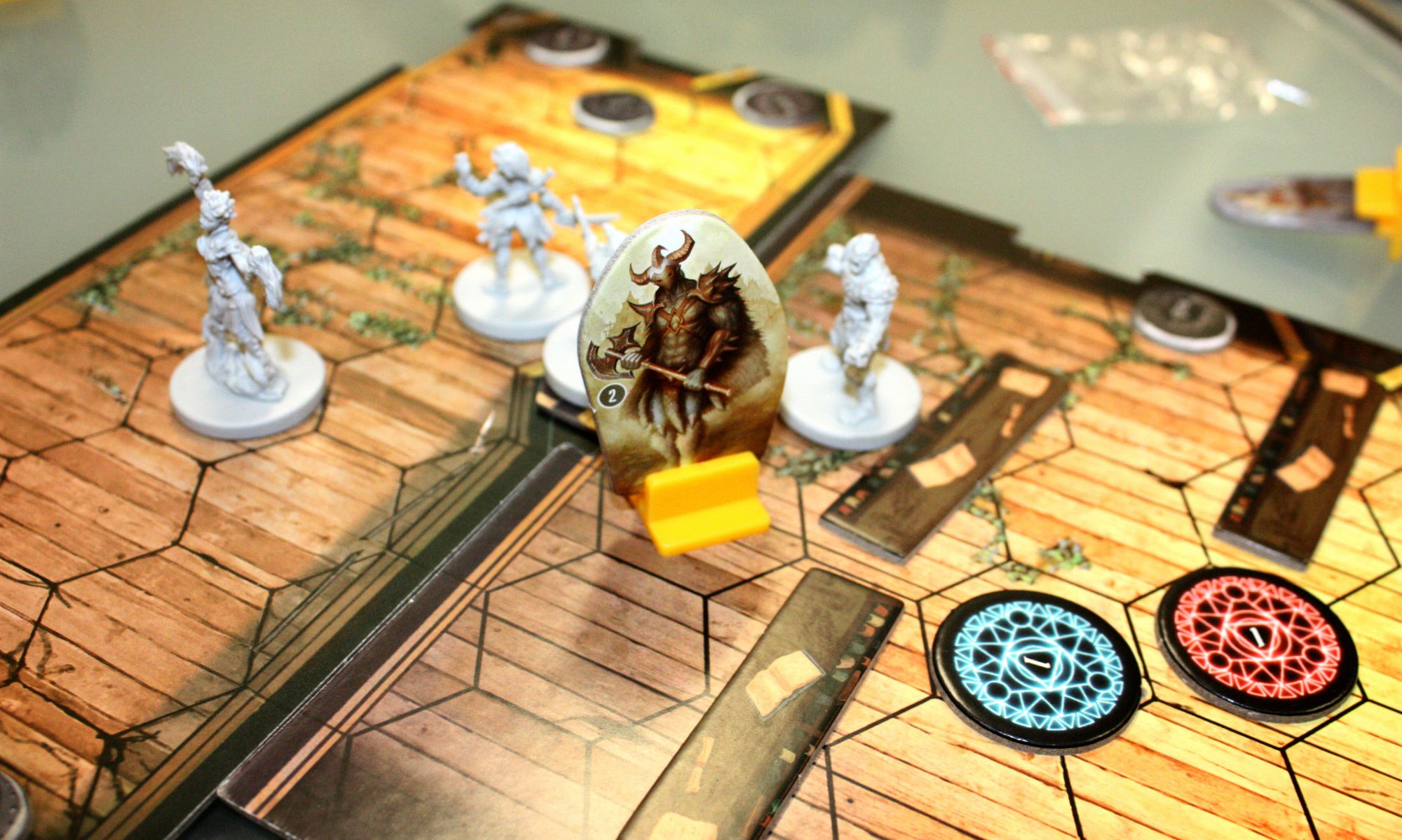450 board gamers participated in a recent survey on behaviour at the table. While many questions were subjective and situational, the survey provided a fascinating insight into board gamer behaviour. According to the results, below are the top ten inappropriate behaviours for board gaming.
10. Not paying attention to a rules explanation
The game night begins, and you bring a new game out to the table. During rules explanation, one player is distracted and does not listen, perhaps messaging on their phone instead. Throughout the game, the same player often says “nobody told me that was possible” or “I didn’t realise you could do that” during the game.
It’s hard to enjoy the game when you don’t understand how a game works. As a player who has missed some of the rules explanation, please try to listen carefully during this part and if you don’t understand how a specific game mechanic works, don’t be afraid to ask the host to explain it a second time, other players also benefit from rules clarification.
As the explaining player, the decision to repeat the rules explanation, or have one player not know what’s going on is a choice between the lesser of two evils. If you suspect a player isn’t paying attention, although incredibly painful, it’s often best to ask for their attention and repeat the rules explanation for them. In the end, the game will be more enjoyable for everyone when all players know what’s going on.
9. Split attention between the game and mobile phone
Your sitting at the table playing a board game together, and between rounds one player spends all of their time on their phone. When it becomes their turn, it’s like a driver texting at the traffic lights who has no idea the light turned green. After pointing out to the player that it’s their turn, everyone must now wait while the player restudies the board and look for changes before taking their turn. Add five minutes per turn, onto the games estimated finish time for this player.
Everybody understands urgent circumstances, such as when you’re expecting an urgent phone call, but don’t waste other people’s time by playing a game or having side conversations. Board gaming presents an opportunity to break away from technology and use the board game as a social medium for face to face communication. As a player, put away your mobile devices at the table. Remember that while everybody in the room is there to enjoy the game, they are also there to enjoy the company and attention of those around them. Distracting yourself on your phone sends the signal that you do not enjoy the company of the others around you. When other players continuously sit and wait for you to take a turn, don’t be surprised when you don’t get a reinvite.
![]()
As an event host, if one of your players is consistently picking up their phone, consider that it might be a side effect of them feeling uncomfortable. In the youtube video “Addiction to Technology is Ruining Lives” Simon Sinek argues that millennials prefer to interact with a mobile device in an awkward situation. Before giving a new person soul piercing glares for being on their phone, try and help the player feel involved and part of the group.
8. Make out of game deals for kingmaking
You’re in a tight struggle with another player for the lead, and slightly ahead with a third player slightly behind. All of a sudden the player coming second offers the player coming third an offer, ‘help me win and I’ll shout you dinner’. The deal has nothing to do with the current game! The player accepts the request, and with the combined power of the other two players, you lose. Some may view this as cheating, while the requesting player can claim that they are not breaking any game rules.
Kingmaking is a board gaming term for when a player who has no chance of winning, deliberately uses his influence in the game to determine the winner. The kingmaking player slows the player in the lead and or boosts another player to decide who wins the game. Kingmaking is frowned upon because the outcome of the game is no longer by each players skill levels or decision making.
Interestingly, making deals inside of the game rules is seen as perfectly acceptable according to the survey, but if you find yourself resorting to deals reaching outside of the game know that you’re crossing an ethical line.
7. Play to lose quickly because they’d rather play a different game
When you sit down to play a board game with others, people often ask how long the game? It’s an important question because you are entering an unwritten social contract to spend an allotted amount of time to have an interactive gaming experience with others. This behaviour is especially problematic in cooperative games, where all players are attempting to beat the game.
Unless everyone no longer wants to play the game in front of them, when one player deliberately tries to lose quickly it ruins an otherwise enjoyable game for everyone. If you’ve committed to playing a game for a certain amount of time, consider how invested the others are in playing the game to the end.
If you only have a fixed amount of time before another game is starting, tell the other players from the outset. Then, if the game continues over the recommended time limit, you can point out that you’ve run out of time for that game.
If you do not want to play a game at all, you’re better off not starting when you don’t want to see the game through to the end. Be honest and tell the other players that you’re waiting to play another game, and therefore don’t want to start. Once you commit to a game and the other players are enjoying themselves, don’t try and ruin the game for a better offer.
6. Drop out or give up, when it becomes apparent they can’t win
You’re playing a game when one player falls behind. They realise there is no way for them to win, so they stand up and leave the game. This behaviour is a more polite version of the table flip, without the flip.
This issue involves the motives why people play board games. Some people play to win, and can’t stand to lose. Do you play to win? Or do you play to spend time with others? Do you value the journey? Or the end goal?
Many people enjoy the social experience of the game, but some people need to win. Sometimes it can be the result of setting unrealistic expectations. A player may believe they are superior to the others in the group, and therefore their ego is bruised if they lose.
The achievement in winning a game is only real if there is a risk of losing. If there is no possibility of losing, then why play? If you feel you must win, once you discover that other people are intelligent and smart human beings worthy of beating you, you’ll find yourself gaming for the social side, over needing to win.
5. Staying silent when someone cheats
Cheating in a game may be intentional, or a direct misunderstanding of the rules. In a study conducted by McTernan, Love and Rettinger (The Influence of Personality on the Decision to Cheat), cheating was found to be linked to personality traits of impulsiveness and sensation seeking. If cheating is a personality trait then, people who cheat are likely to repeat the behaviour. Interestingly, the behaviour of letting people cheat was deemed highly unacceptable. Therefore, if you notice another person cheating, it is desirable to stop the person and point it out to others.
4. Treat game components in an alarming manner
You’re sitting at the table playing a card game when someone breaks open a bag of cheese supreme corn chips. With bright orange fingers full of cheesy, salty residue they go to pick up their cards you haven’t sleeved yet. The card becomes oil stained and has a permanent mark on the back which makes it visible when sitting on top of a deck.
But board games are not cheap, and components cost money. Even though board gamers may seem to have many games, they do value the games they own. Damaging one part could deem the entire game unplayable. Be careful about what food you bring to game night, and treat each component with respect.
3. Take another player’s turn for them, while they’re out of the room
A player leaves the room to call his wife and tell her he’ll be home late. He comes back only to find his move taken and play continued. A player assures him there was just one reasonable option, so he made a move for him.
Taking turns is an integral concept in communication, and is critical to natural language speaking. A player turn is their right to make a decision, control their destiny, and orientate themselves to the current state of the game. If the game continues without them present, they will lose their bearings and may not be able to enjoy the rest of the game.
When a player leaves the room, pause the game and talk with the other players, have a break. Even when the player only has one possible move, show some patience and let the player make their move.
2. Bow out in the middle of a game to join a different game starting up
This behaviour is similar to playing to lose, except the player doesn’t even feel the need to lose the game. As stated above, when you agree to play a game with other people, you are entering into an unwritten social contract to spend an allotted amount of time to have an interactive gaming experience and explore the game.
While anyone can understand if there is an emergency, leaving the game halfway due to preference, shows disrespect and rudeness to other players.
1. Look at another players cards while they are out of the room
Your friend needs a toilet break, they set their cards aside on the table and say they’ll be right back after a quick toilet break. While they’re gone, you take a look at their cards. When they return you have a smug look on their face, but they don’t know why. All of a sudden each of your plays is countering theirs, and then you slip up by making a sly remark about the last card in their hand.
When you look at another players cards, you’re not smart or intelligent. You’re disrespecting the player. Give people common courtesy and give them the privacy they deserve. Resist the urge to look at people’s cards when they leave the room.
Conclusion
Most of the top ten inappropriate behaviours come down to common courtesy and common sense. Treat board games and board gamers with respect, and you’ll find that others will increasingly enjoy having you at the table, and you will enjoy yourself more often.
Credits
A special thank you to Ironregime on Board Game Geek for posting the survey, with some very thoughtful responses.

